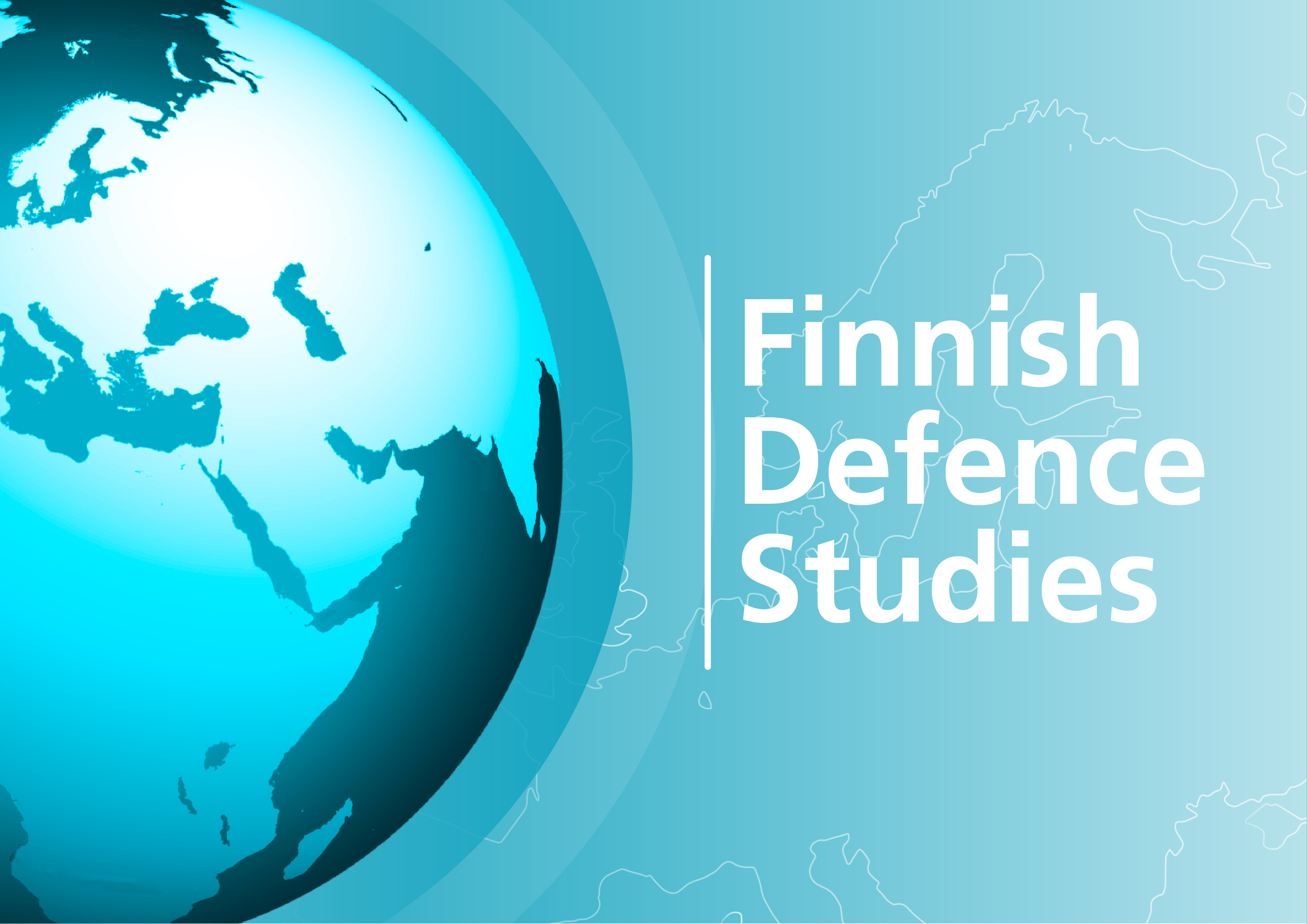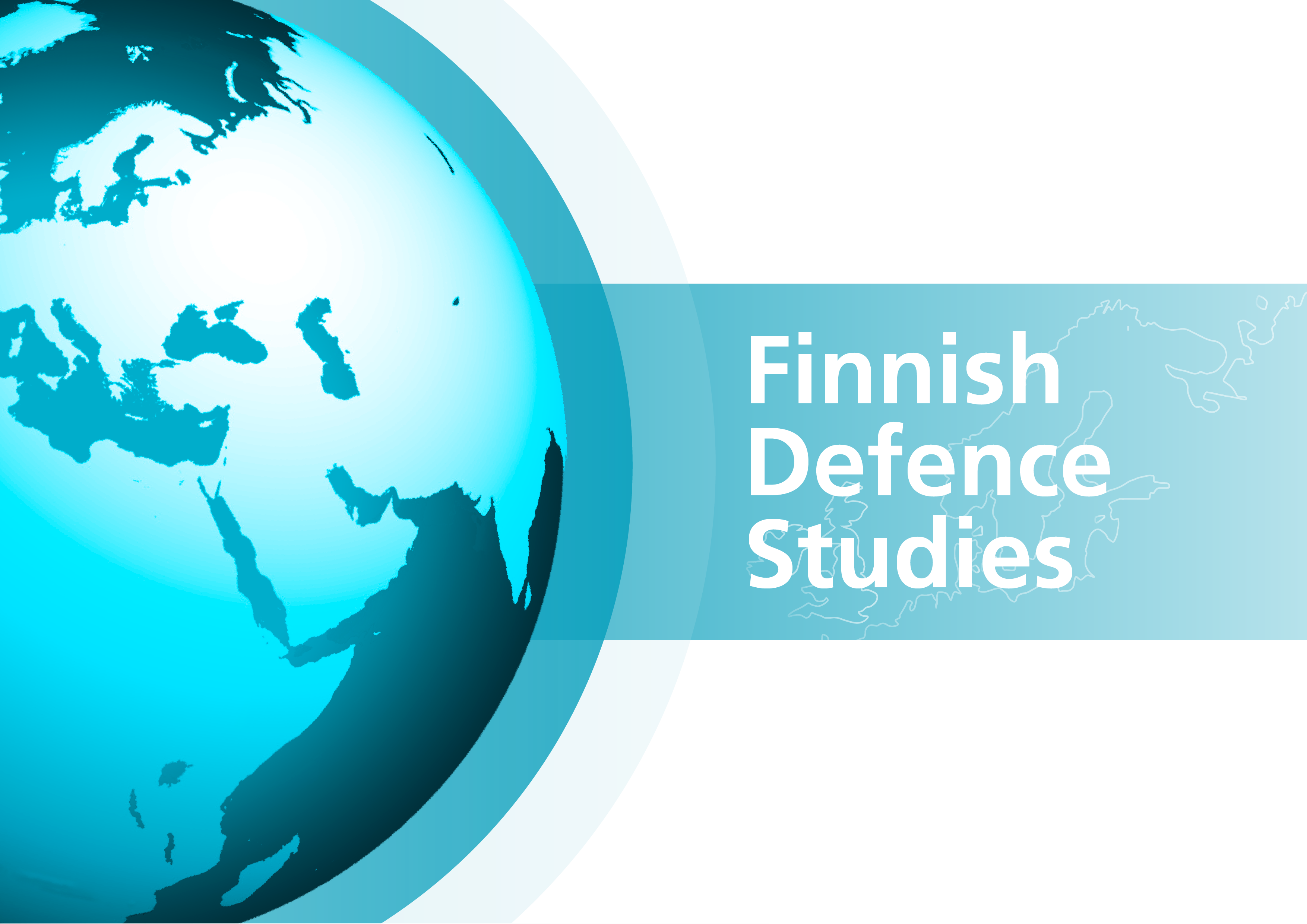Finnish Defence Studies
Finnish Defence Studies is a peer-reviewed publication series under the auspices of the Finnish National Defence University. Its goal is to publish high-quality research within military sciences that is of interest for international readers.

The contributions to Finnish Defence Studies reflect the fields of research and teaching of the University. Views expressed in its publications are those of the authors and do not necessarily imply endorsement by the National Defence University of Finland.
The publications of the series can be freely downloaded here.
Editorial Board
Prof. Tommi Koivula, National Defence University (editor-in-chief)
Prof. Antti-Tuomas Pulkka, National Defence University (member)
Prof. Petteri Jouko, National Defence University (member)
Prof. Hannu Kari, National Defence University (member)
Prof. Juha-Matti Lehtonen, National Defence University (member)
M.A. Aki Aunala, National Defence University (editorial assistant)
Guidelines for submitting a manuscript to Finnish Defence Studies
Finnish Defence Studies is a peer-reviewed publication series with a JUFO 1 rating. The manuscript should be more than 50 pages but it shouldn’t exceed 150 pages. One page is approx. 3500 characters including spaces or 540 words (font Garamond, font size 13 pt, line spacing 1).
Anyone interested in publishing in Finnish Defence Studies should contact the editor-in-chief to offer their manuscript for the series. The manuscript must not have been previously published and must not be offered for publication elsewhere at the same time.
The editorial board discusses the texts offered for the series and sends them to two external experts for peer review if it determines that the text is suitable for publication in the series. In peer reviews, which can be carried out either anonymously or openly, manuscripts are either given (a) assent by evaluators, in which case the evaluators make minor suggestions for corrections and improvements, (b) a correctable opinion, in which case the text requires more extensive corrections and a new assessment, or (c) a rejection opinion, in which case the work cannot be published in series. A dismissive opinion from either reviewer will result in the manuscript not being accepted into the series.
The data created during the peer-review process will be stored for a period of at least five years. Offering a manuscript for publication is considered to be the author’s declaration of consent to the scholarly publisher’s peer-review practices.
The National Defence University pays the author a fee when publishing according to publication policy of the Finnish Defence Studies publication series.
Finnish Defence Studies has received the user rights for the peer-review label, a trademark registered by the Federation of Finnish Learned Societies (TSV), on 20th of September 2023. The label will indicate that the peer-review of articles and books has been performed in line with the quality and ethical criteria imposed by the academic community. Finnish Defence Studies is undertaking to adhere to the requirements imposed on the use of the label.
Referencing policy
The series uses the Chicago Full Note citation system based on footnotes and bibliography. (see, e.g., The Chicago Manual of Style)
When a source is first mentioned in the text, the footnote should include its full cost information as below:
Book:
Colin S. Gray, Theory of Strategy (Oxford: Oxford University Press, 2018), 80.
Scientific article:
Alexander Sergunin and Valery Konyshev, “Russian Military Strategies in the Arctic: Change or Continuity?” European Security 26, no. 2 (2017): 180–182.
When the same source is referenced in the future, the footnote should use the abbreviated form of the source as below:
Gray, Theory of Strategy, 80.
Sergunin and Konyshev, “Russian Military Strategies in the Arctic,” 180.
The list of references should be formulated as follows:
Alexander Sergunin and Valery Konyshev, “Russian Military Strategies in the Arctic: Change or Continuity?” European Security 26, no. 2 (2017): 171–89.
Duncan Depledge et al., “Why We Need to Talk about Military Activity in the Arctic: Towards an Arctic Military Code of Conduct,” Arctic Yearbook, 2019.
Works published in the Finnish Defence Studies series

No. 23, 2023
Kukkola, Juha: The Military Strategic Effects of the Russian National Segment of the Internet
No. 21, 2018
Paronen, Antti: See you in New York: ISIS and the strategic evolution of the Jihadist movement
No. 20, 2015
Palokangas, Marko: Exploding Wilderness: Guerilla-type activities the Finnish art of war
No. 19, 2012
Limnéll, Jarno: Finnish Threat Perception Policy in the Early Years of the 21st Century
No. 18, 2010
Raitasalo, Jyri: Reconstructing Finnish defence in the post-cold war era.
No. 17, 2007
Tynkkynen, Vesa: Towards east or west? Defence planning in Finland 1944–1966.
No. 16, 2004
Manninen, Ohto: The Soviet plans for the north western theatre of operations in 1939–1944.
No. 15, 2004
Kurkinen, Petteri: Civilian-military cooperation in crisis management operations.
No. 14, 2000
Välimäki, Pasi: Intelligence in peace support operations.
No. 13, 2000
Toveri, Pekka: Future operational-tactical level warfare: challenges and opportunities for the defence of Finland.
No. 12, 1999
Puheloinen, Ari: Russia’s geopolitical interests in the Baltic area.
No. 11, 1998
Tuomi, Osmo: The new geopolitics: the world system and Northern Europe seen from a modern geopolitical perspective.
No. 10, 1997
Nikunen, Heikki: Air defence in Northern Europe.
No. 9, 1996
Viitasalo, Mikko: The Baltic – sea of changes.
No. 8, 1995
Gardberg, Anders: Åland islands: a strategic survey.
No. 7, 1994
Penttilä, Risto E. J.: Finland’s security in a changing Europe – a historical perspective.
No. 6, 1994
Nordberg, Erkki: The Baltic republics – a strategic survey.
No. 5, 1992
Salminen, Pertti: The impact of arms technology on military doctrines – documentation.
No. 4, 1992
Koli, Markku: Development of military technology and its impact on the Finnish land warfare doctrine.
No. 3, 1991
Nokkala, Arto: Non-offensive defence: a criteria model of military credibility.
No. 2, 1991
Nieminen, Tauno: Flank or front: an assessment of military-political developments in the high north.
No. 1, 1990
Visuri, Pekka: Evolution of the Finnish military doctrine 1945–1985.


